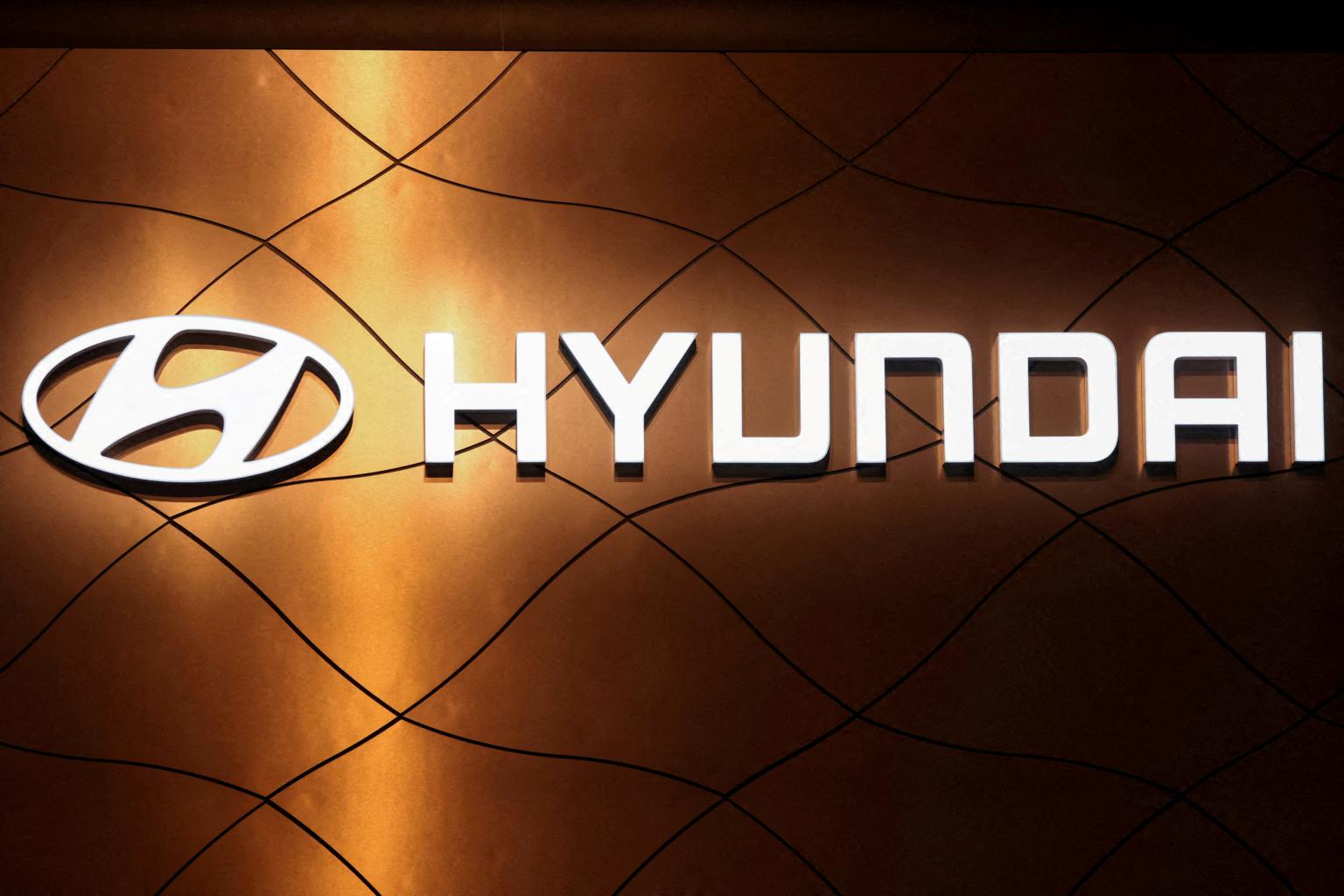Hyundai has climate dilemma at one of world's top car plants
Sign up now: Get ST's newsletters delivered to your inbox

Hyundai signalled it aims to construct a liquefied natural gas facility to supply electricity to the Ulsan factory.
PHOTO: REUTERS
Follow topic:
SEOUL (BLOOMBERG) - Hyundai Motor will study alternatives to a gas-fired power station for one of the world's biggest automobile plants after criticism that the decision contradicts pledges to shift entirely to clean energy.
The South Korean automaker had signalled it aimed to construct a liquefied natural gas (LNG) facility to supply electricity to the Ulsan factory, which can churn out around 1.4 million vehicles a year and accounts for about a quarter of the company's production.
Those proposals came after the company said in April that four key units, including Hyundai Motor and Kia, would aim to move to 100 per cent renewables as soon as 2040 and join the RE100 initiative, under which companies commit to end their use of fossil fuels.
Climate-focused campaign groups, including Greenpeace and Action Speaks Louder, argue that the LNG plant will not align with Hyundai's announcements on climate action, and say there is a risk the power station would become a stranded asset because of the volatility in gas prices and the declining cost of renewable energy.
"Hyundai is fully committed to its carbon neutrality goal and global sustainability targets," the company said in an e-mailed response to questions. "We will review the plan and look to see if there are any viable alternative options."
Hyundai plans to zero out emissions from its operations by 2045.
The company's struggle to satisfy climate-focused investors and campaigners is another illustration of the difficulties that energy-hungry manufacturers face in South Korea. Fossil fuels accounted for more than 60 per cent of the country's electricity generation in 2020, and major companies like Samsung Electronics have highlighted the challenges to transition to cleaner power sources.
South Korea is aiming to have net-zero emissions by mid-century, though it has been struggling to ramp up its use of renewables because of a lack of space and an unfavourable environment for solar and wind.
Hyundai has considered LNG as it is less polluting than coal, and intends to examine prospects to reduce the emissions further by co-firing natural gas with hydrogen, Mr Kim Dong-wook, executive vice-president at the company's business coordination team, told reporters last week on the sidelines of the 2022 World Gas Conference in Daegu.
"It is a matter of deciding whether we should continue to depend on the national grid, which heavily depends on coal, or source our own electricity with the cleanest form of fossil fuels," Mr Kim said.

